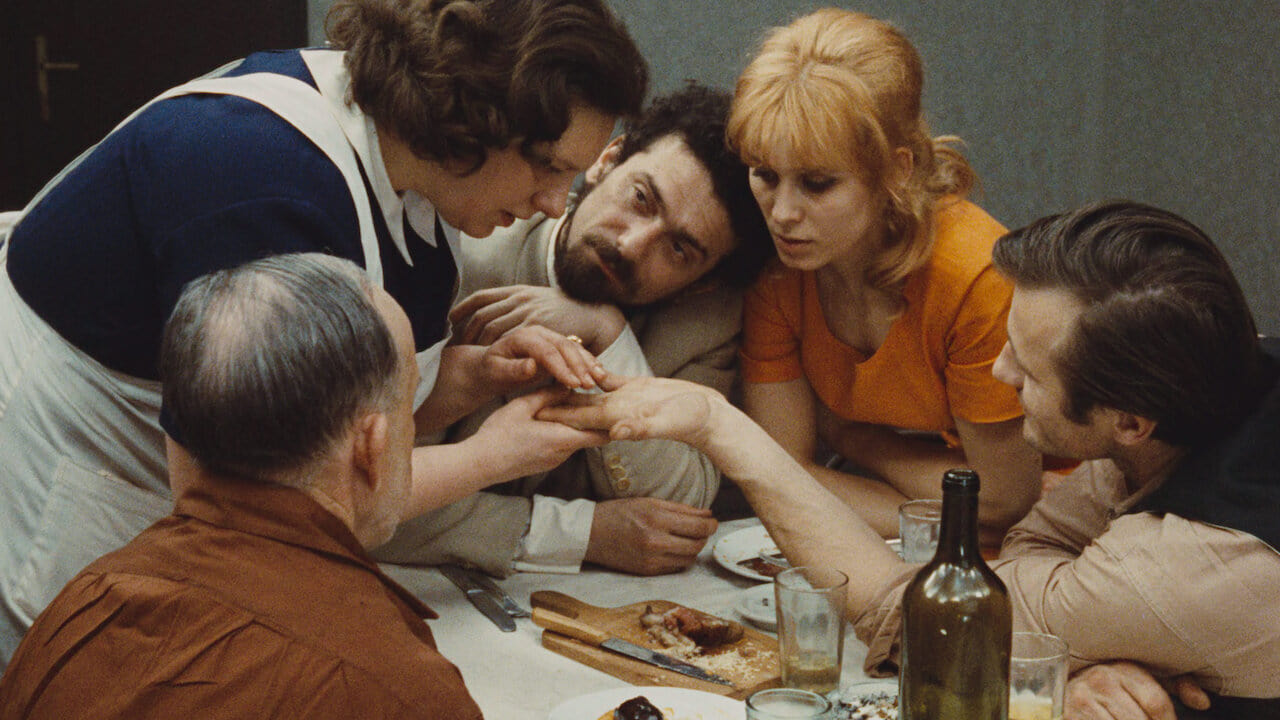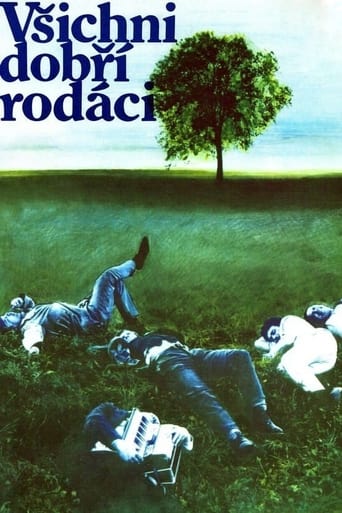

An Exercise In Nonsense
... View MoreI have absolutely never seen anything like this movie before. You have to see this movie.
... View MoreExcellent characters with emotional depth. My wife, daughter and granddaughter all enjoyed it...and me, too! Very good movie! You won't be disappointed.
... View MoreI think this is a new genre that they're all sort of working their way through it and haven't got all the kinks worked out yet but it's a genre that works for me.
... View MorePossibly the most famous work of the nonagenarian Czech filmmaker Vojtech Jasný, ALL MY COMPATRIOTS is a trenchant allegory of life under the Communist regime, shot with sublime bucolic élan and fairly won him the BEST DIRECTOR honor in Cannes. Inhabited in an idyllic Moravian village, this close-knit community Jasný rounds up is particularly male-oriented, a patriarchal microcosm where the fate of ordinary lives is steered by an intangible hand. From the film's time span (1945 to 1958), inhabitants are divided by political views, tormented by past deeds, succumbed to ludicrous idiocy or outrageous hatred, united behind one good guy but also crumbled when things become menacing. Overall, Jasný manages to flesh out a vivid smorgasbord of characters living under shifting sands with none-too-heavy-handed snippets center on their objects: a four-square peasant (Brzobohatý, full of fortitude), a shifty photographer, a guilt-ridden drunkard (Matuska, strikingly entrancing), a displaced organist, a cleft-lipped thief, an ill-fated postman among others; whereas in the petticoat front, we have a running gag of a jinxed merry widow, whoever dares to court her would be pretty soon pushing up daisies. But, the film's strength and value does not reside in the circumspect plot construction, because Jasný doesn't offer a rounded inspection of the state of affairs, most of the time, audience are passive witnesses of the unjust happenings but barring from peering into the machinations behind those (Communist) persecutors and connivers (they are all schematically depicted as surly pawns), thus it manifests that Jasný's standing point might not be entirely objective, it has Jasný's autobiographic influence notwithstanding, but no more a convincing censure of the regime than a frank rumination of an existential philosophy and his unbiased view of the hoi-polloi (both affectionate and matter-of-fact). Actually what makes this film a marvel to any new audience is its ethnographic portrait of the place and its people, Jasný has an extremely keen eye on faces and lights, the portraitures he captures are magnificent to say the very least (particularly the furrowed visages of the elderly), and sonically, its nostalgic soundtrack (organ pieces, lyrical strains) and diegetic music sequences serve as excellent ballast to those indelible images, somehow, the film is sublimed itself into something might surpass even Jasný's intention, something should be enshrined as an ardent reportage of its locus and time, a deathless enterprise finds its solid toehold amongst a vastly manifold Czechoslovakian cinema.
... View More'All My Good Countrymen' is a curious little Czech movie that tells how a small village fell into Communism.A small little blip of a town suddenly has a pro-communism group banging their fists on the table demanding that farmers give up their land for a new farming policy that is more in line with party policy. The villagers not surprisingly, are dead set against it. The village then goes through almost a cycle of mysterious arrests of townspeople who are anti-Communism, trying to pressure the farmers to sign a commie card, and the very curiously high mortality rate of the Party members, I actually liked the variety of characters in this movie, and their interactions with each other. The big problem I have with this movie is it's lethargic pacing. The film just crawls and crawls to its conclusion, which is sort of well, anti-climatic.
... View MoreAn excellent film that takes a group of villagers as allegorical characters for Czechoslovakian society. The film follows these people from post-WWII (and pre- communism) to the late 50s, watching as they and their village change. In terms of the unescapable creeping feeling of dread, I was reminded of Ang Lee's _The Ice Storm_. While the film is clumsy at times (some shots or plot shifts might have been done better), the cinematography can be very resourceful. Watch also for the classic symbols of Czech identity: the geese, the white horse (from the legend of Libuse), and the old women (from the Czech novel _Babicka_). These mirror the plot nicely.
... View MoreThis film tells the story of a village in Czechoslovakia from 1948 to 1968. Combining satire, farce, drama, poetry, and pure photo-lyricism seamlessly, it shows how politics and daily village life are interwoven in the fates of a broad spectrum of the village's inhabitants. The film's audacity and epic scope remind me of early Orson Welles--don't miss it!
... View More